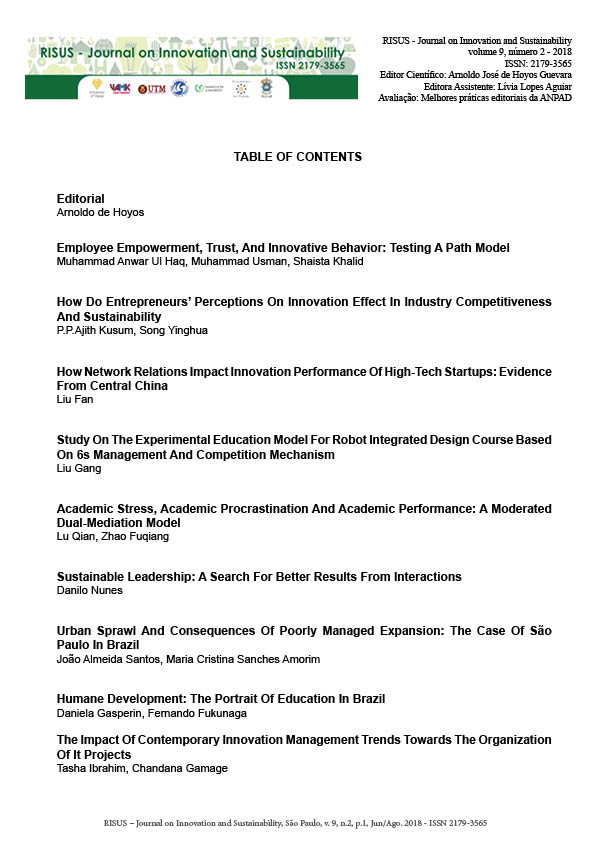SUSTAINABLE LEADERSHIP: A SEARCH FOR BETTER RESULTS FROM INTERACTIONS
DOI:
https://doi.org/10.24212/2179-3565.2018v9i2p47-54Keywords:
Leadership, Group, Integration, CooperationAbstract
It is understood that if there is leadership, it is because there are leaders and leds. Leadership is the process that results from the interaction and integration of those two subjects. It is a fact that the effective exercise of leadership will exist when there is not only concern with the hierarchical relationship itself, but also with the perception of those involved. The strengthening of the collective will take place when the characteristics of each group member are strengthened. Diversity is when we talk about behavior, respect for diversity, and people’s competences and skills. The sum of individualities constitutes the broad sense of the group. The approach that followers want and expect from their leaders leads us several reflections to the point that we say that an executive can be led by someone from another hierarchical levels, provided that in a specific task, the group is the basis of construction. But it is very difficult to see this reality in the actual cooperative context; however much the concepts are shifting to an wide scenario, more flexible, more heterogeneous, a significant portion of those in leadership positions still reside under a traditional culture background in which the hierarchy is the basis of organizational power and almost the only reference to it. On the basis of this study research, it is stimulating the search for the answer to the following disquiet: How can leadership contribute to sustainability goals? In the dynamics of groups as an interactive and integrative organizational practice, we seek a way of acting where leaders and leds find the best ways to achieve these resultsDownloads
Published
2018-06-30
Issue
Section
Papers
License
This Journal is licensed under a Creative Commons Attribution-Non Commercial-No Derivers 4.0 International license.
1.The author (s) authorize the publication of the article in the journal;
2.The author (s) warrant that the contribution is original and unpublished and is not in the process of being evaluated in other journal (s);
3. The journal is not responsible for the opinions, ideas and concepts emitted in the texts, as they are the sole responsibility of its author (s);
4. The editors are entitled to make textual adjustments and to adapt the articles to the standards of publication.


